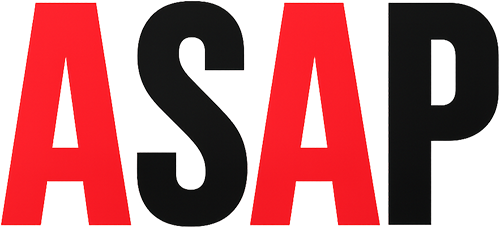1年ぐらい前まで2年ぐらいにわたって大手の採用記事を担当しておりました。今回は採用面接について触れてみようかと思います。
最近では転職エージェントや転職サイトから転職希望するという人が多いようです。転職サイトも転職エージェントも情報が多すぎて大変なので、担当者がどれだけいい案件を紹介してくれるか、それに該当する人間であるかが採用を決めるのはゆるぎない事実だと思います。
昔は履歴書を手書きで書いていたものですが、最近はデジタルで書けるようになったので間違った時のショックなどはなくなっていると思いますが、それでも企業ごとに職務経歴書の中身を書き換えたりすることはあると思います。ですから書類自体の不備等で採用面接に至るか否かというのは書類のどこが重要かに尽きると思います。つまり、「字が汚い」「誤字脱字がある」といった問題はあまりないわけです。
となると、やはり履歴書については「年齢」「学歴」「写真」が重要となりますし、職務経歴書でいえば「転職回数(少ない)」「実績(輝かしい)」となるでしょう。これらが完璧なら、採用面接突破率は当然高いはずです。なんせ書類から見える綺麗な情報が非常にきれいすぎるので。
しかしながら、面接に行くと履歴書や職務経歴書がいかに盛られたものかを目の当たりにします。特に口下手だとアウト。営業側の人であれば多少カーブを投げられても合わせることはできそうですが、事務方の人などは変化球を投げられようものならしどろもどろになることも多いはず。ですから、数をこなすしかないです。いきなり第一志望の面接ではなく、企業には悪いですが練習用の企業面接も大事でしょう。そこで内定が出ておけば安心材料にもなりますし。そう、大学受験の滑り止めみたいなもの。
年齢の壁はあるようで、今自分が転職エージェントや転職サイトで転職活動したら年齢で一発アウトでしょうね。
あとは学歴。学歴フィルターはないと言われていますが、バイアスが働かないわけがないと思います。先日見ていたフジテレビの会見でも5人いましたが、嘉納修治前会長(慶応義塾大学)、港浩一前社長(早稲田大学)、遠藤龍之介副会長(慶応義塾大学)、フジ・メディア・ホールディングス金光修社長(早稲田大学)、清水賢治新社長(慶応義塾大学)と、皆さん早稲田・慶応の高学歴。逆に言うとこのようなところには東大・京大さることながら、早稲田・慶応の方々でないと入社できないし出世できないのだなと感じます。
学歴も考え方で、学部の学歴に納得いかないのであれば大学院を目指すなどしてみればいいのにと思います。そういった学歴ロンダリングしている人はたくさんいます。大学院であれば1年通えば卒業できるところもありますのでおすすめです。
転職回数や実績については今度にします。
Up until about a year ago, I spent two years working on recruitment articles for a major company. This time, I’d like to touch on job interviews.
Recently, many people seem to be job hunting through recruitment agencies or job search websites. Both offer an overwhelming amount of information, making it crucial for candidates to find a competent recruiter who can suggest the right opportunities. Whether or not a candidate fits the criteria for the job is an unshakable factor in determining recruitment.
In the past, resumes were handwritten, which made mistakes more stressful. Nowadays, the digital format has eliminated that shock. However, candidates still need to tailor their resumes and cover letters to fit each company, and whether or not they make it to the interview stage often depends on what’s highlighted in the documents. In short, issues like “poor handwriting” or “typos” are less of a concern now.
That said, key elements remain vital. For resumes, “age,” “education background,” and “photo” often play a critical role. For cover letters and work histories, “few job changes” and “noteworthy achievements” are essential. If these factors are presented flawlessly, the chances of passing the interview stage increase dramatically. After all, a clean, polished document reflects well on the candidate.
However, once candidates face the actual interview, the truth about how much the resume was “embellished” often comes to light. If they are poor at verbal communication, it can spell trouble. Candidates from sales backgrounds may be able to handle curveballs, but administrative professionals often struggle when thrown unexpected questions. The only solution is to gain experience by attending multiple interviews. It’s important not to start with your top-choice company right away. It’s okay to treat some companies as practice. And if you happen to get an offer from one of them, it can provide peace of mind—like having a backup university during college entrance exams.
Age remains a significant barrier. If I were to use recruitment agencies or job search websites today, I’d probably be rejected based on age alone.
Then there’s education. While many claim that academic background doesn’t matter, unconscious biases undoubtedly exist. I recently watched a press conference on Fuji TV featuring five executives: Shuji Kono (Keio University), Hirokazu Minato (Waseda University), Ryunosuke Endo (Keio University), Osamu Kanemitsu (Waseda University), and Kenji Shimizu (Keio University). The dominance of graduates from Waseda and Keio made it clear—at prestigious companies like this, it’s hard to climb the ladder unless you come from a top university.
But education is a flexible factor. If you’re unhappy with your undergraduate degree, you could consider going to graduate school. Many people engage in what’s known as “academic upgrading” by earning higher degrees from prestigious institutions. Some master’s programs only take a year to complete, making them a worthwhile option.
I’ll save the discussion on job changes and achievements for next time.
株式会社ASAP
及川知也

